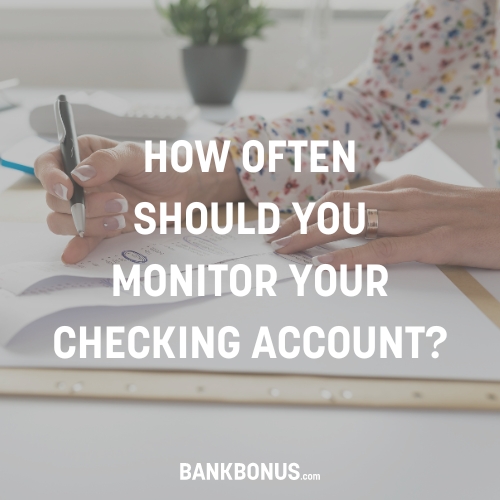Bank bonuses are an incentive that banks offer to draw in new account holders. Offers can vary from one bank to the next, and so can the fine print. That’s why it’s important to look into the terms of each offer before signing up for a new account.
At BankBonus.com, we’re committed to helping consumers find the best bank bonuses for their wallets.
In today’s guide, we’ll break down the different types of bank bonuses, explore eligibility requirements, and give you the tools you need to decide if a bank bonus is worth your time.
What Are Bank Bonuses?
Similar to credit card bonuses, bank bonuses are promotional offers that banks award to new customers when they open an account. They usually come in the form of a cash offer that ranges anywhere from $100 to more than $1,000.
In addition to requiring you to open a new account, bank bonuses sometimes come with a few extra eligibility requirements. For example, they’re usually only offered to new customers and may require you to meet minimum balance requirements or complete a set number of transactions.
Once you’ve met the requirements, the bank will usually directly deposit the bonus into your account within 30 to 60 days. Because each bonus is different, it’s important to read the terms and conditions to ensure you understand the requirements and any potential limitations.
Are Bank Account Sign-Up Bonuses Worth It?
Most of the time, bank bonuses are worth it. The best bank bonuses are easy to qualify for, and the accounts they’re attached to offer competitive features with minimal fees and account requirements.
With those offers, you’re essentially getting free money in exchange for opening an account that will keep rewarding you long after you receive your bonus.
That being said, some bank bonuses might not be worth your time. If you’re considering opening a new account to get a bonus, be sure to factor in the following:
- Initial bonus amount: Some bank bonuses are larger than others. It’s important to consider whether the bonus amount justifies the time and effort required to meet the bank’s requirements. In most cases, it does.
- Minimum deposit and balance requirements: Since some bank bonuses come with minimum deposit or balance requirements, you may need to deposit a substantial amount of money and maintain that balance for a period of time to qualify for the bonus. Make sure tying up your funds for a few months makes sense in your financial situation.
- Account fees: Some bank accounts that offer bonuses also come with monthly maintenance fees that can eat into your bonus. Make sure you’re in a position to meet the minimum requirements to avoid fees; otherwise, the bonus may not be worth it.
- Interest rates: Consider the interest rates as well as the bonus. A high bonus amount might be attractive, but if the account’s interest rates are significantly lower than other banks, you could end up sacrificing long-term earnings for a one-time bonus. That being said, remember that you can open numerous bank accounts at once.
- Tax implications: Bank bonuses are generally considered taxable income. Be prepared to report the bonus amount on your tax return, since it may affect your overall tax liability for the year.
How To Qualify for Bank Bonuses
Qualifying for bank bonuses may not be as hard as you think. After opening your new account, you may be required to meet some of the following requirements to earn the bonus:
- Make a qualifying minimum deposit
- Set up and receive a minimum amount of direct deposits
- Maintain a minimum account balance for a set period of time
- Complete a set number of debit card transactions
Banks are constantly rolling out new bonus offers, and the terms and conditions can change along with them.
At BankBonus.com, we constantly research and contact banks and credit unions to provide you with the most up-to-date bank bonus offers available to you, so you can easily track bank bonus offers and review their requirements in one place.
Explore the best bank bonuses and promotions here.
Types of Bank Bonuses
Most bank bonuses are offered in the form of a cash bonus for opening a new account. You can often get bank bonuses when you open a checking, savings, money market, or brokerage account.
Some banks offer bonuses in the form of increased interest rates on high-yield savings accounts or waived account fees.
In addition to welcome bonuses, banks may also offer referral bonuses to existing customers who refer friends or family members who open an account. These bonuses usually come in the form of cash incentives, too.
Other Account Features to Consider
Bank bonuses aren’t the only factor to consider when you’re thinking of opening a new account. Here are some more key account features to keep in mind:
- Interest rates: When comparing bank accounts, pay close attention to the account’s APY. The best accounts offer competitive APY on all account tiers, and some savings accounts pay 5% interest.
- Fees: Consider the various fees associated with the account, such as monthly maintenance fees, overdraft fees, ATM fees, and foreign transaction fees. Opt for an account with minimal fees to save money in the long run.
- ATM access: Assess the bank’s ATM network and whether they reimburse ATM fees for using out-of-network ATMs. Easy access to ATMs can be a major convenience.
- Online and mobile banking: Look for a bank that offers user-friendly online and mobile banking services with features like mobile check deposits, bill pay, and account management tools.
- Account minimums: Some accounts may require a minimum balance to avoid fees or qualify for certain benefits. Consider whether the account’s minimum balance requirements are worth it and opt for accounts with no minimums.
Frequently Asked Questions
Is It Worth Switching Banks for a Bonus?
It can be worth switching banks for a bonus. Even though it can feel like a hassle to switch banks, most of the process can be done online, from switching your direct deposit information to changing your automated withdrawals.
If you don’t want to switch banks, see if you have enough money to deposit into the new account to earn the bonus while leaving your existing bank account open.
When Do I Have To Pay Taxes on Bank Bonuses?
Unfortunately, you have to pay taxes on bank bonuses, but since they’re usually $200 to $500, they aren’t going to increase your tax burden so much that they aren’t worth it. Always report the income because the bank will inform the IRS about it, but don’t let it stop you from getting bank bonuses.
When Should You Avoid Bank Bonuses?
Most of the time, you can safely take advantage of bank bonuses. However, you can avoid a bank bonus promotion if you can’t meet the minimum requirements or have any short-term account needs that would prevent you from tying up your funds for a set period of time.
The Bottom Line
Bank bonuses can be a worthwhile incentive if you have the means to meet the requirements and maintain the account.
Anytime you see a bonus you can take advantage of, do it. You’ll earn free money and possibly score different rewards than your existing bank account offers.





Comments are closed.
Comments are closed here.